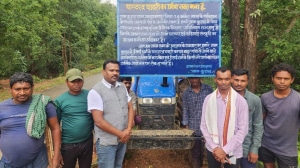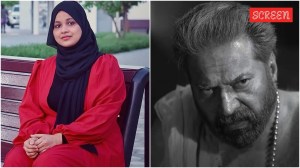Indian women suffer gender apartheid, UN official
NEW DELHI, DECEMBER 14: The plight of women in India reminds Nafis Sadiq of the lives of people under apartheid.For the United Nations Pop...

NEW DELHI, DECEMBER 14: The plight of women in India reminds Nafis Sadiq of the lives of people under apartheid.
For the United Nations Population Fund (UNPA) Executive Director, women in India suffer the kind of dehumanisation that was meted out by the erstwhile white-dominated regime to the blacks in South Africa.
Referring to the uniquely Indian trait of harassing women, Sadiq said, "What is happening to women in India, is not teasing, it is dehumanising. It reminds me of the former regime in South Africa, where a whole class of people were simply treated as if they were not human".
While constitutional rights to protection against violence existed, in practice women had no such protection. "Women in India live under a form of gender apartheid that is no less real for being undeclared," she said while delivering the fifth J R D Tata Memorial Oration organised here by the New Delhi-based Population Foundation of India.
Active discrimination against women began even before birth with the relativeneglect decreasing the girl child’s chances of survival. Quoting the well-known economist Amartya Sen, who calls it a "process of quiet violence", Sadiq said poor health care and nutrition in infancy, together with sex-selective abortions, result in a skewed gender ratio.
An overall ratio of 93 girls to 100 boys in India had to be contrasted with Kerala’s ratio of 103 girls for 100 boys, incontrovertible proof that the lopsided gender ratio can be corrected.
Sadiq urged a change in the mindsets of men and women, saying the fight for reproductive rights, gender violence and against HIV/AIDS are essentially the same battle. "The battle will be fought and won in the same place — in the minds of men, and to a lesser extent, the minds of women".
The second-class status of women in many parts of India was being thrust into prominence by a new threat, that of HIV/AIDS. With around 4 million HIV/AIDS cases, and one in every 50 pregnant women testing positive for HIV, Sadiq warned that the disease should berecognised as a national crisis which would become much worse if not approached with determination.
Sadiq’s plain-speaking resulted in a volley of questions, with the audience questioning her on issues ranging from the contribution of the developed world to population programmes, to economic reform and linking womens’ rights with human rights.
Sadiq made frequent references in her speech to the contribution of J R D Tata, who while building an industrial empire, advocated a holistic approach without losing sight of the need for social change and development.
Union Health and Family Welfare minister, N T Shanmugam suggested that the AIDS control programmes in the South Asian countries be implemented jointly.



- 01
- 02
- 03
- 04
- 05




























